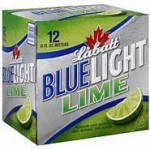General Mills gets a lesson ‘bout messin’ with legal rights in overbearing Terms and Conditions.

Almost anyone who has put up a website is guilty: Your “Terms and Conditions,” “Terms of Use,” “Legal Matters” or “Legal Terms” section is over the top.
Sure, you want to be protected. Or, at least, you want to feel protected.
However, you may face a severe backlash from the people you are courting as customers.
Case in point: General Mills.
General Mills slipped some language into their Legal Rights that said customers,
“give up their right to sue the company if they download coupons, “join” it in online communities like Facebook, enter a company-sponsored sweepstakes or contest or interact with it in a variety of other ways.”
Instead, if you derive any sort of benefit, you are stuck with email negotiation or arbitration for any dispute. That $0.50 coupon for Wheaties is looking kinda expensive now, isn’t it?
General Mills backtracked the language, explaining:
“There’s no mention of arbitration, and the arbitration provisions we had posted were never enforced. Nor will they be. We stipulate for all purposes that our recent Legal Terms have been terminated, that the arbitration provisions are void, and that they are not, and never have been, of any legal effect.”
Then they added, “That last bit is from our lawyers.” Always blame the lawyers.
General Mills spokesperson explained that they never imagined this reaction. “Never considered it” is probably more accurate.
She continued to explain:
“Similar terms are common in all sorts of consumer contracts, and arbitration clauses don’t cause anyone to waive a valid legal claim [Ed: Um, sometimes they do.]. They only specify a cost-effective means of resolving such matters [Ed: Um, not always.]. At no time was anyone ever precluded from suing us by purchasing one of our products at a store or liking one of our Facebook pages. That was either a mischaracterization – or just very misunderstood. Not that any of that matters now.”
Translation: You, Customers, didn’t read it correctly, but we are changing it anyway.
Good for General Mills for listening to customer complaints, but you’d think they would have been more diplomatic about it. How about the truth: “We overreached and didn’t think any of our customers would ever notice, at least until they tried to sue us. Since there are plaintiffs lawyers and public interest groups that pay attention to this sort of thing, word got out. Sorry about that. We’re changing back.”
Here is the current page for General Mills’ Legal terms.


